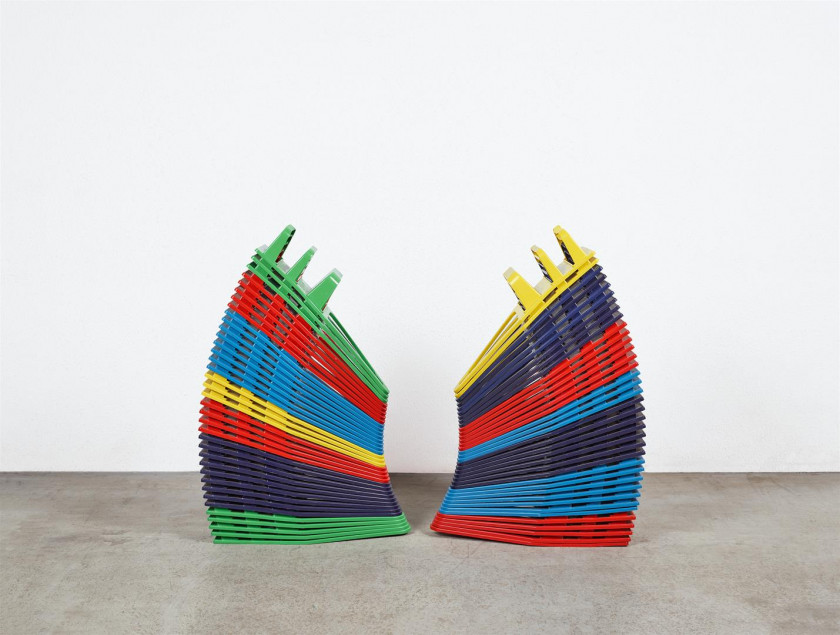Edifício Porta Shampoo (Asas) [Shampoo holder building (Wings)]
sculpture


2007
Colored plastic shampoo holders
67 x 87 x 17 cm
Marepe's work evolves from a deep connection with cultural traditions, customs, and materials tied to the artist's birthplace of Bahia, Brazil's Northeastern region. By employing the specificities of his environmental milieu and juxtaposing these against Brazil’s socio-political reality, Marepe safeguards them as memory while creating a complex layering of references and meanings addressing the linkage between the individual and society.
Edifício Porta Shampo, 2007 is part of a series of works for which appropriation, deployment, and dislocation serve as a departure point. A minimal sculpture made from cheap, mass-produced objects of daily life, in this case, a plastic shower supports for shampoo, is characteristic for its ambiguity, echoing aspects of industrial production and references to art history simultaneously. Marepe rejects the understanding of his work as a ready-made, and instead prefers to perceive his sculptures as "necessities," alluding rather than to the gesture of appropriation, to the modification of the object's use, shift in meaning and the new social context it is a part of. The principle of stacking, characteristic for this series, may it be the stacking of plastic buckets, spatulas, plates, or shampoo holders, as is the case of Edifício Porta Shampo, refers on the one hand, to the objects reproducibility, rejecting the romantic idea of a unique work of art, while on the other, tying the sculpture firmly with 20th-century vanguards. While the division of each stack into plates of colors resonates with the formal characteristics of Donald Judd's Untitled (Stack) series, evoking concepts of commercial availability and industrial production, its form associates the work with Brancusi's Infinite Column – a modern embodiment of the concept of infinity. By merging the aesthetic of everyday life with the context of art, Marepe creates uncanny sculptures, which through their play of irony and paradox, shape a powerful commentary on socio-economic issues tied to contemporary modes of life, may these be connected with the production and consumption of objects of daily use or with the consumption of (contemporary) art itself.
Markéta Condeixa